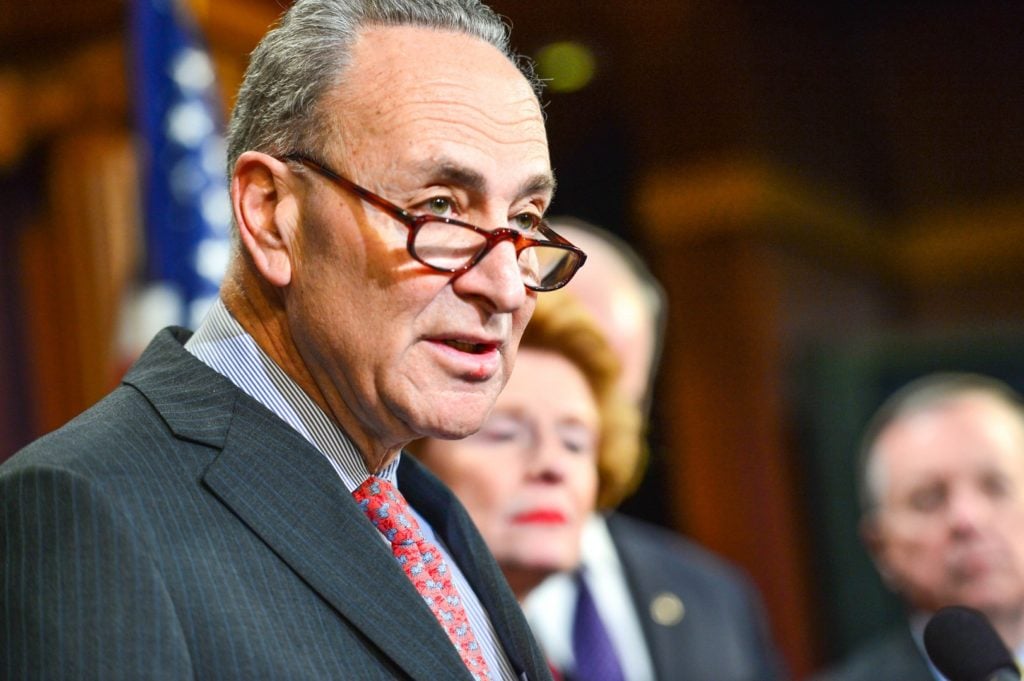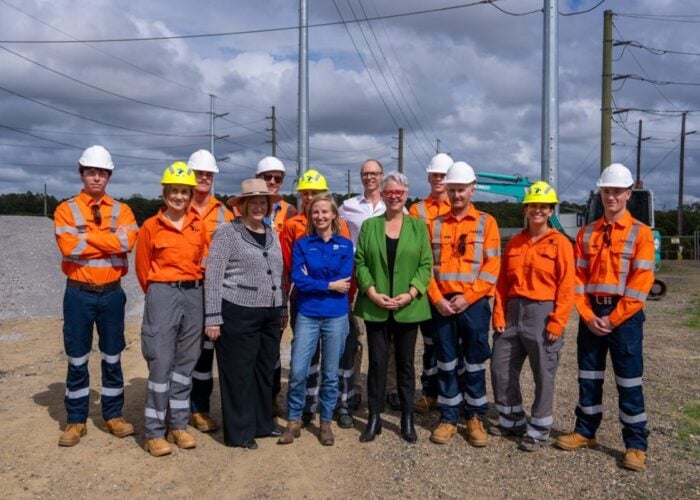
US Senate majority leader Chuck Schumer has failed in a bid to fast-track the US’ US$1.2 trillion infrastructure investment bill through the Senate.
But there remains hope that further progress could be made as early as next Monday, when some Republican senators believe the bill will be fit to proceed.
Try Premium for just $1
- Full premium access for the first month at only $1
- Converts to an annual rate after 30 days unless cancelled
- Cancel anytime during the trial period
Premium Benefits
- Expert industry analysis and interviews
- Digital access to PV Tech Power journal
- Exclusive event discounts
Or get the full Premium subscription right away
Or continue reading this article for free
Late last month President Biden confirmed that he had reached a bipartisan deal with senators from both sides of the aisle on a US$1.2 trillion infrastructure package which included, among swathes of investment earmarked for road building and other transport improvement programmes, up to US$73 billion in renewable infrastructure investment.
A new grid authority is to be established, while funding will facilitate thousands of miles of new power transmission lines and other infrastructure to accommodate greater quantities of renewables power in the US.
Last month the White House said the plan amounted to the “single largest investment in clean energy transmission in American history”.
But the deal’s progress has been stymied amid rumours of stalling tactics from Republican officials and threats to filibuster the process. While the plan has indeed attracted bipartisan backing, to progress through the US Senate any vote on the bill would still require 60 votes. Republicans have publicly suggested that finer details of the plan are still to be agreed, with the US Senate set to break for its summer recess on 9 August.
In a bid to break the deadlock, Senate majority leader Chuck Schumer intended to open the debate and moved a vote of cloture which, if successful, would have ended the possibility of senators filibustering the bill by limiting debate to 30 hours. The move was unsuccessful, with just 49 senators voting in favour. Schumer eventually voted against his own motion, essentially defeating it, allowing him to bring the measure back to the Senate at a later date.
The bipartisan infrastructure group issued a statement following the vote insisting it considered the bill to be close to warranting agreement, with some senators suggesting final text could be approved by Monday (26 June 2021).
While some suspicion remains that Republican senators could simply be stalling the bill until the summer recess, President Joe Biden issued his confidence that lawmakers would strike an agreement during a Town Hall Debate with CNN journalist Don Lemon yesterday evening.
“You had up to 20 Republicans sign a letter saying, ‘We think we need this deal. We think we need this deal.’ I come from a tradition in the Senate: You shake your hand. That’s it. You keep your word… Here’s what I think: What happens is, the vote on Monday is a motion to be able to proceed to this issue. Then they’re going to debate the issue of the… individual elements of this plan,” Biden said.
While this bill includes measures which will support solar PV installations by enabling grid investments, specific solar supports such as the investment tax credit extension are absent, with these almost certainly set to be introduced via a budget reconciliation act later in the year.
Speaking during a webinar hosted by ROTH Capital earlier this week, former head of the Solar Energy Industries Association (SEIA) Rhone Resch said the ITC extension was likely to be introduced at the 30% level, with the addition of a tax credit for standalone storage also introduced. However Resch also said that due to limitations of the budget reconciliation process, which forbids measures from impacting on the country’s deficit for longer than ten years, a 10-year ITC extension was now less likely, while direct-pay options could also be capped at 85% of total value.






